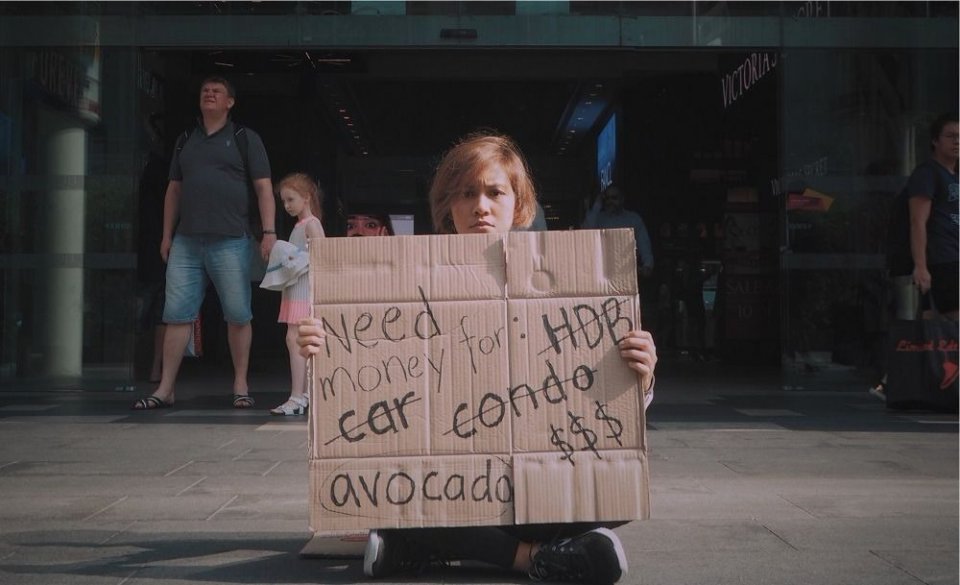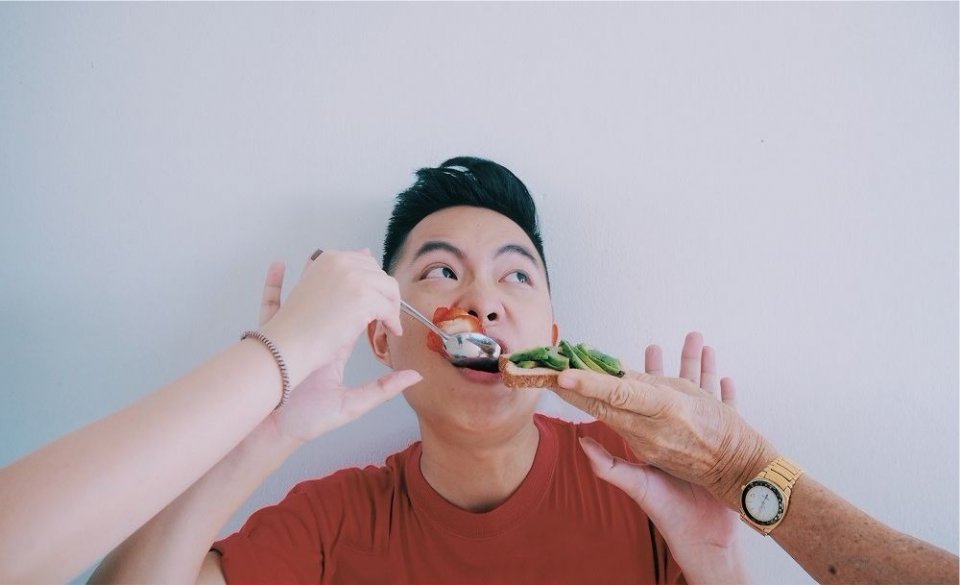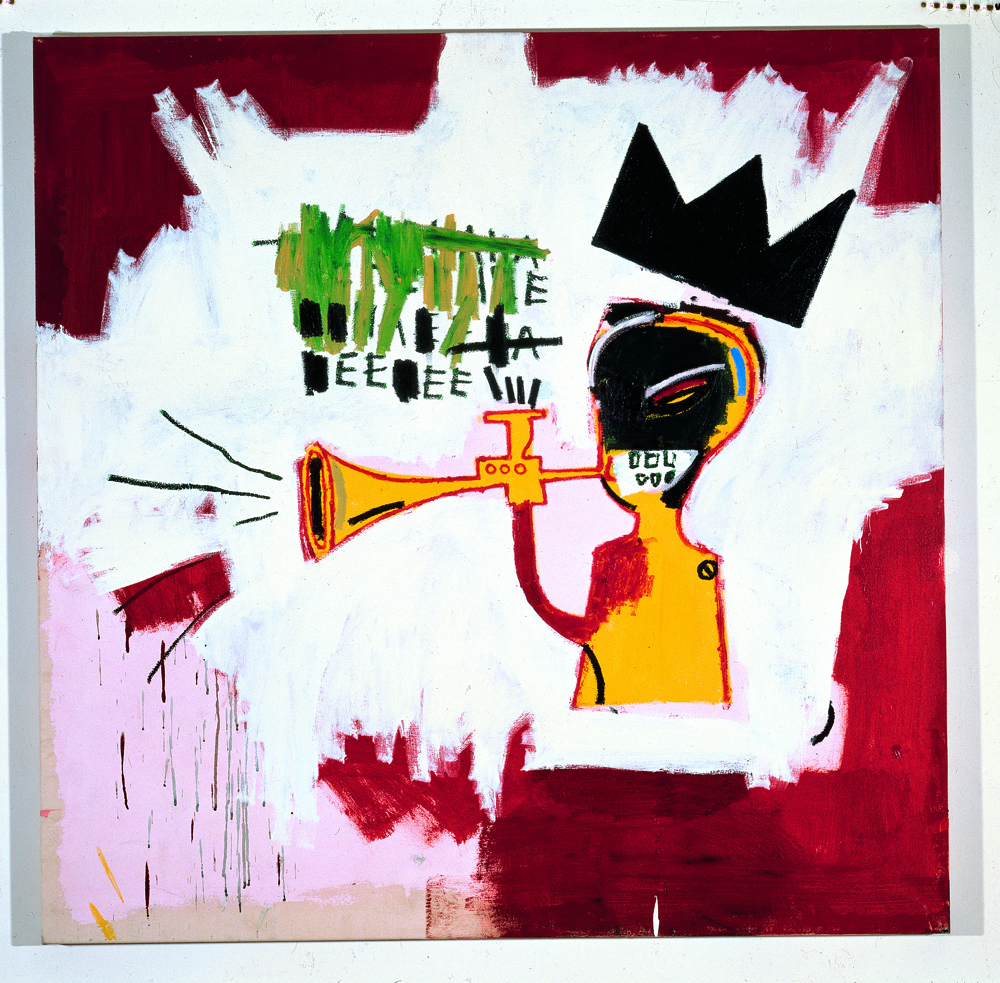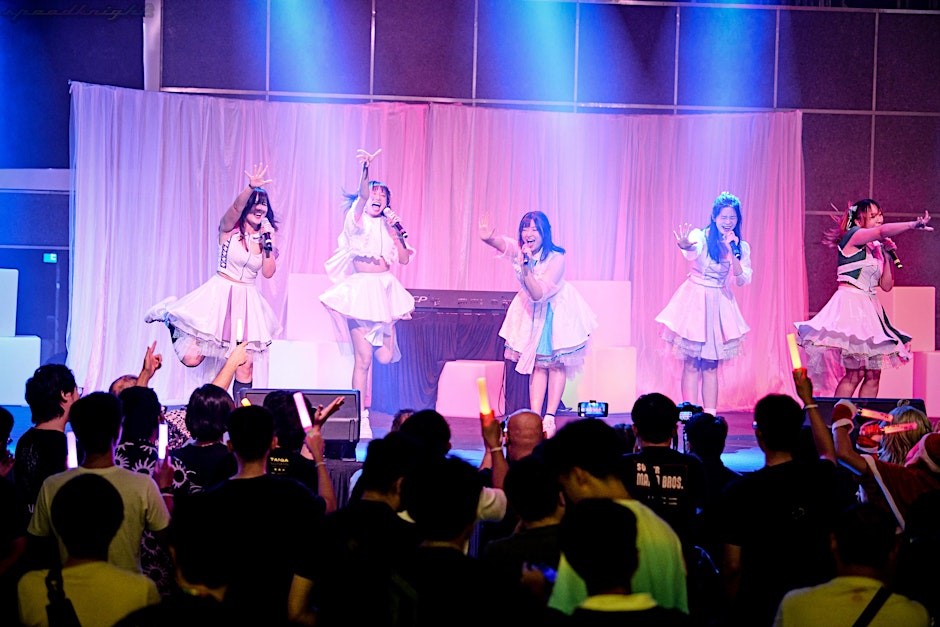One Thousand Millennials Crying is exactly what it says it is: A show about millennials crying—about life, the forces that be, and the goddamn patriarchy. Naturally, director Mitchell Fang, 27, is anxious about reception.
“I am very worried the play will come across as ranting,” he said. “We do our best to try and simmer down, just so we can make the show more palatable for a range of people, but there is a danger—our play is called One Thousand Millennials Crying; you know what I mean?”
I don’t; but only because co-playwrights Fang and Kenneth Chia, 24, seem to possess a more nuanced idea of their generation than most millennials. As part of the Fresh Fringe segment of the M1 Fringe Festival 2018, the play, which debuts Jan 27 at the Esplanade Rehearsal Studio, dissects millennial culture with both humor and sensitivity. And Chia and Fang are more than capable of handling any “ranting” with elegance.
From the safety of their blanket fort, the characters discuss real issues surrounding modern youth culture—like bending to capitalism, workplace discrimination, and changing definitions of resilience; the avocado jokes are just a cute buffer that fit nicely into the comedy frame of the show. It seems like a winning formula many clearly agree on, seeing as the play sold out both its shows before 2017 even ended.

Photography by Kenneth Chia
“What was really lovely was having people come up to us and say, “Hey we bought tickets to your show, we’re non-theatre-going, regular goers’—and they were all young millennial folk,” said Fang.
Millennials themselves, the duo, who have worked together in the past, is careful about correctly representing an entire generation. “It’s really important that the work I do captures the sense of the people that I’m surrounded by, and the people of my generation,” said Chia.
“But one of the challenges about writing about millennial culture is that we can’t put a finger on it because it changes everyday; the memes change everyday. You put it out in January, you’re outdated.”

If, as they discuss below, new-age resilience is indeed all about thinking and talking, then One Thousand Millennials Crying certainly is the paramount example of resilience today. For instance, they talk about nostalgia at lengths, which Fang calls a “very big thing at the moment”. Genuinely puzzled, he points out his peers’ sudden fascination with retro culture and local heritage.
“Like all these ang ku kueh cushions—you got eat ang ku kueh one meh?”
Chia raises other mainstays of millennial culture: “The ‘80s filters, the noise over the photos; we all know the Wong Kar Wai aesthetic.” Fang groans right on cue.
“There’s the one with the date right at the corner of the photo.”
This is where I admit shamefacedly that it’s from a free camera app called Huji, and that I have it too.
“But you see!” says Chia. “It’s this kind of culture, this new obsession with nostalgia. It’s almost like if you don’t feel nostalgic about something, then wah you’re missing out; you have FOMO (fear of missing out). Like how come all my friends have something to miss and I don’t miss anything—does that mean my life is empty?”
But the pair are quick to reassure that their intentions, and the play, are not to shame. “It’s slapstick,” Fang says. “It takes a piss at millennial culture itself.”

And if all else fails, One Thousand Millennials Crying is comedy, created so the most hated generation in history can laugh at themselves. Before we end, I ask what they have to say to people who look down on millennials; very aptly they proffer a selection of Instagram caption-worthy quotes.
“Age is just a number.”
“Time is not real; you could die tomorrow.”
And my personal favorite:
“Start looking up lah; looking down gives you a double chin.”
Read on for more millennial insight on millennials.
Why the focus on the millennial theme?
K: Every night I cannot sleep; if I don’t write a millennial play…
M: If you go online, you see a lot of these articles (about millennials), and the funny thing is I really don’t identify with any of those things. So to have all of this slapped on me, it’s like where are we, and what’s going on?
K: We talk so much about millennial culture but we don’t realize that a lot of millennial culture is American millennial culture; it’s a very Western version. If you think about the timeline of which we do things in life—at age 18, people over there move out of home, they have all these debts to clear, and university and student loans. But the truth is a lot of millennials here don’t pay rent; we still live with our parents. And it was really interesting to think about it like, what does millennial culture mean in Singapore now? Because it feels like we’re always trying to play catch-up to this Western definition of what culture is supposed to be.
How is One Thousand Millennials Crying relevant to this year’s theme?
K: The obvious choice would have been to just do a play about women—but we are two men here. So we thought okay what other group has, in today’s context, been put through that same machine? Back in the ’90s, companies were using women to make money in the beauty industries—telling them to look a certain way; but at the same time, these were the same companies whose advertising put down women, whose hiring policies didn’t give them equality. And this sort of tension is the same with millennials. All these banks they want to make millennial ads; they want you to spend money. But when it comes to hiring millennials, the internal HR policies have all these other misconceptions that they haven’t resolved. They’re not really interested in bridging communities; they just want to bridge the red to the green in their balance sheets.
M: Like women, (millennials) deal with patriarchal institutions that are still influencing a lot of pressures that we face—like having a nuclear family; some of the characters are from single-parent families. In a way we’re also discussing the same kind of forces, if you will.
K: It’s like trying to see how deep the rot goes with these institutions of power. Their fingers reach everywhere; everything the characters say—they’re trying to resist certain things, but they cannot help but use the oppressor’s language to describe the things that they want to fight against.
Why do you think people want to disassociate from the millennial generation?
M: Actually before this term “millennial” started proliferating, it was the term “strawberry generation”, and it’s all intimately tied to resilience, or what people think of as resilience. There’s a term called “lesbian processing“. Basically it’s just about how girls like to talk about their feelings, uncover their trauma and learn to heal; all this behaviour is ascribed to the “strawberry generation”—cannot handle stress, cannot keep everything bottled up. And now that everyone in the 21st century likes to do that a lot, that’s deemed as weakness.
When people reject labels, they do it on an emotional basis. So this rejection of millennial culture is just an ultimate statement going “I’m not weak, I’m not one of them”. But if I’m a strawberry because I want to heal, then I accept.
What do people get so wrong about millennials?
M: Well resilience is a big one, and the ideas about what resilience means. For example, for the baby boomer generation, I think industrialization was everything. So learning to stay long hours in the workplace, the low pay, was a big thing. But this era is about creativity—so taking your time to daydream is actually fostering creativity; and those are obviously traits that will not be typically recognized as a strength.
K: Fundamentally we all want the same things—to provide for the people that we love, to spend time with people who mean something to us; we all want to find our place in life, however fluffy that sounds. A lot of building that bridge between generations is just about sitting down and being able to say ‘we both have the same problem; we both want the same things’.
1000 Millennials Crying debuts Jan 27, 2pm and 4pm, at the Esplanade Rehearsal Studio. Tickets are sold out, but by Chia’s recommendation you can try your luck at the Fringe black market Marketplace here.





